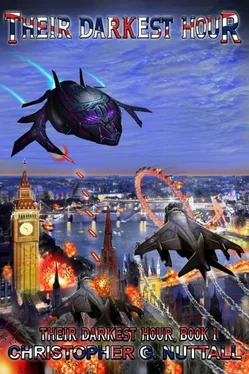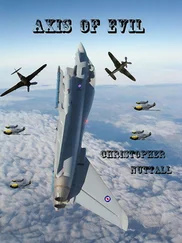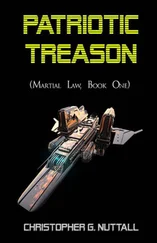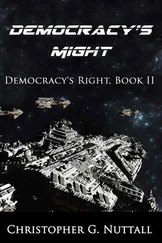Behind her, Fatima heard the sound of angry shouting in three different languages and the sound of hosepipes. She felt her heart clench inside her as they walked away, nearly fainting when a row of police vans shot past them and down the road at terrifying speed. The district was normally crammed with cars inching their way through the streets, but now it was empty, allowing the police to move fast. And they were taking her family away… she wanted to scream after them, but what good would it have done?
Abdul looked down at her. Oddly, she felt safe with him. “I’m afraid your… cousin managed to blow himself up earlier this morning,” he said. “The police — and the Leathernecks — identified him and marked your family down for retaliation. You’re a wanted woman now, I’m afraid. The moment you show that ID card of yours, they’ll snatch you up and put you in one of the camps.”
Fatima stared at him. “How do you know that?” She demanded. Something else crossed her mind. “And who are you?”
“My name is Abdul,” Abdul repeated. “And I’m part of the resistance. And now so are you.”
They reached a small apartment block, one that catered to students at London’s universities. Some of the students, Fatima had heard, had managed to get permission from the aliens to return home, while others had found themselves trapped in London. It seemed an odd place to hide a resistance cell, but it did make a certain kind of sense. The landlords would be used to people coming and going at all hours of the day and they’d turn a blind eye to certain activities. They walked up two flights of stairs and entered a small suite of rooms, clearly ones that had been abandoned in a hurry. Somehow, she was sure that Abdul himself wasn’t a student. He walked more like a mature and experienced man of the world. The kind of man her cousins had wanted to become.
“But I can’t,” she protested, finally. Her entire body was shaking. She had to be in shock, she realised. Her entire life had just fallen down around her. God alone knew what would happen to her family. “I can’t just leave and… I’ve got patients to see!”
“The moment you show yourself,” Abdul said, kindly, “they will arrest you. There’ll probably be a reward on your head before too long. You can’t do anything for your patients now — the only thing you can do is get yourself arrested.”
He placed one hand on her shoulder. “We have this flat for the next fortnight, at least,” he added. “Get a shower, have a long rest — and I’ll see you tonight. You’re a doctor — the resistance could make use of you. Certainly better use than the aliens could…”
Fatima found her voice. “But what will happen to my family?”
Abdul looked, just for a second, uncharacteristically guilty. “I don’t know,” he admitted, “but I don’t think it will be anything good. It’s rather more likely that they will execute them — to encourage the others, as they say. The only thing you can do now is help us to avenge them.”
Fatima watched him go, her mind spinning. Her world had turned upside down… and she couldn’t even cry. What could she do now?
Near Gayhurst
United Kingdom, Day 20
“I just got the buzz,” Private Cole muttered. “The Leathernecks are on their way.”
“How unlucky for the Leathernecks,” Chris Drake muttered back. The aliens were certainly predicable, all right. It seemed odd that they made mistakes that human armies had learned to avoid, but from what he could tell, they might have good reason to believe that this particular alien routine wasn’t dangerous. There were reports suggesting that, two days ago, several men armed with hunting rifles and shotguns had tried to take on an alien convoy. They’d been killed without harming a single alien. “How long do we have?”
“Fifteen minutes, at most,” Cole warned. “Maybe less. They do seem to speed up from time to time.”
Chris shrugged. The alien hover-tanks moved at speeds that Challenger tanks would have found flatly impossible. Even the smaller armoured vehicles in the British Army — or the barely-armoured Snatch Land Rover — would have had trouble matching their speed. But human trucks and lorries were slower and the aliens, it seemed, were willing to press human drivers into service to help their logistics. It stood to reason that they’d prefer to use human labour where possible, but it didn’t seem to have occurred to their commanders that this meant that their convoys were slower than they might have preferred. Or perhaps their commanders simply didn’t care. Chris had encountered a couple of senior officers who issued orders that forced the soldiers on the ground to do more with less — and mistook the map for the terrain. And given that the aliens seemed alarmingly inflexible, they probably didn’t give their troops on the ground any latitude at all.
Of course, we had to learn, didn’t we ? He thought to himself. I wonder if we’ll be the lucky ones who run into an alien junior officer with the guts — or family connections — to do his own thing …?
The M1 motorway was one of the longest motorways in Britain, connecting London to Leeds. It had also been one of the busiest, at least until the aliens had arrived and managed to do what years of protest and campaigning by environmental freaks hadn’t. Now, the motorways were almost deserted, used only by the aliens and their collaborators. Indeed, a handful of shot-up cars signified the dangers of using the motorways in a world where armed men were intent on waging war against the occupiers. Most families were conserving what little petrol they had left for emergencies.
From his vantage point in Gayhurst Wood, he could see the eerily deserted motorway stretching away into the distance. The aliens seemed to be running regular convoys up and down Britain’s motorway network, supplying their bases around British cities. In fact, Chris knew that a number of other attacks had been planned over the coming few days, although he hadn’t been given any specifics. It was strange to feel as if they were both isolated and connected to the resistance underground, but there was little choice. The aliens would presumably have no qualms about using torture to get information out of prisoners.
But we still don’t know what they do to military prisoners , he thought, grimly. The resistance had attempted to trace the prisoners, using assets within the police forces that were serving the aliens, but they’d been unable to come up with any answers. All military personnel had been handed over to the aliens and taken away to an unknown destination. Given that the aliens ruled the entire world, it was quite possible that they’d been taken overseas, perhaps to the Middle East. Or maybe to Antarctica.
He pushed the thought aside as the sensor beside him started to bleep. They might not have any active radars any more, but they could tell when the aliens were using radar — and when one of their drones was heading towards their position. The aliens used drones to provide an outer layer of security for their convoys, a trick that probably explained why they’d picked off the civilian insurgents before they’d had a chance to spring their ambush. This time, however, things were going to be different.
“Get ready,” he muttered. The moment they revealed themselves, the aliens would try to cut them down, perhaps by using something like a drone-mounted Hellfire missile. It was astonishing how advanced UAVs had become in the years since 9/11. Even the Taliban hadn’t been up to evading their unblinking gaze. “Engage as soon as they come into range.”
* * *
Nr’ta Silick studied the live feed from the constantly orbiting drone and relaxed, slightly. The humans were determined opponents, far tougher than anyone else they’d encountered at a comparable technological level, but they clearly didn’t realise how easily their movements could be monitored by the Land Forces. A handful of convoys had been hit by concealed explosives and snipers, yet they’d never managed to take on a whole convoy — and never would. Their failure to develop space like any sane race left a gaping hole in their capabilities, one that a truly advanced race could use against them.
Читать дальше












